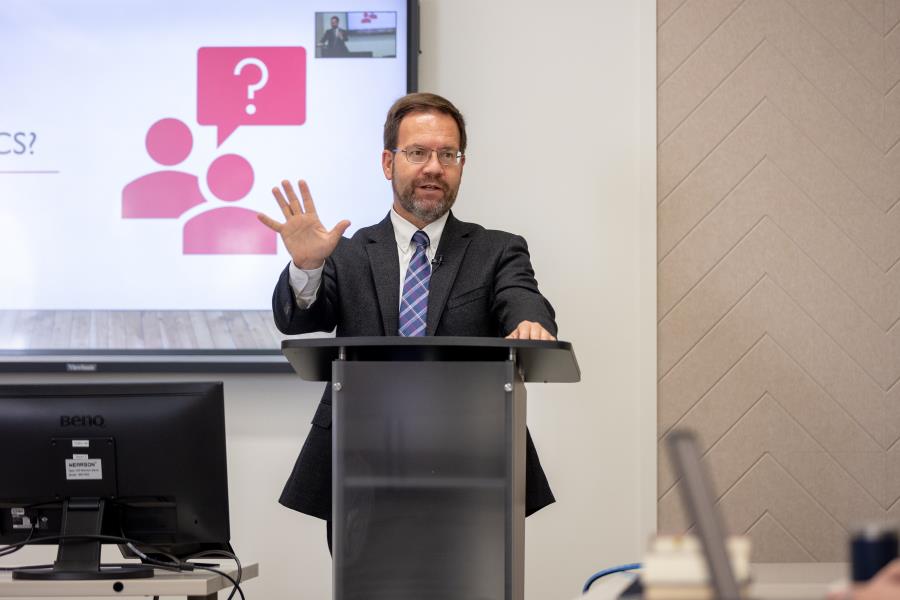
Dogmatology Courses
1407 - Philosophy
(Credits: 2)After introducing philosophy and logic, this course surveys some key Western philosophical ideas and debates with a view to how they have affected theology and vice versa. The historic Christian paradigm of “faith seeking understanding” receives close attention, as do responses to the Enlightenment, including Reformational Philosophy (Dooyeweerdian) and Reformed Epistemology. Winter Semester.
1408 - Theological Foundations
(Credits: 2)This course explores the introductory and underlying questions, or prolegomena, of doctrinal studies. Topics include the nature, source, and method of dogmatics, with a view to promoting sound doctrine within the church today. We also study how God reveals himself, particularly in his inspired Word, which is the regulation, foundation, and confirmation of our faith. Fall Semester.
1409 - Ecumenical Creeds
(Credits: 2)The study of the church’s creeds and confessions is also called symbolics. This course aims at a thorough knowledge of the Apostles', Nicene, and Athanasian Creeds, including both their history and content. Fall Semester.
1410 - Three Forms of Unity
(Credits: 3)The study of the church’s creeds and confessions is also called symbolics. This course focusses on a thorough knowledge of the Belgic Confession, the Heidelberg Catechism, and the Canons of Dort, the Reformed confessions which have become known as the Three Forms of Unity. Attention will be paid to both their history and content. Winter Semester.
2408 - Doctrine of God
(Credits: 2)Using Holy Scripture as the foundation, this course explores the doctrine of God (theology per se), including the being and attributes of our Triune God.. Fall Semester.
2409 - Creation and Eternal Counsel
(Credits: 2)Using Holy Scripture as the foundation, this course explores the work of our God in creation, providence, and his eternal counsel. Winter Semester.
2410 - Advanced Symbolics
(Credits: 2)Using the Three Forms of Unity as a reference point, the history and text of various significant confessions from the 16th century until today are studied. Special attention is given to the Westminster Standards. Winter Semester.
2411 - Apologetics
(Credits: 2)This course studies the history and methods of Christian apologetics – both negative and positive approaches – and equips students to defend their faith before the world. The first half of the course covers the biblical basis, history, and main schools of apologetics while the second half engages in the practice of apologetics. Winter Semester.
3409 - Anthropology
(Credits: 4)Using Holy Scripture as the foundation, this course explores the doctrines of the creation of humanity, sin, and covenant. Fall Semester.
3410 - Ethics
(Credits: 3)In this course students are introduced to the field of ethics as the study of loving and pursuing “the good.” In order to determine what is the good and to seek to follow it, God’s Word must be our guide. On its basis, we then seek to develop Christian virtues and obey God’s commands. Fall Semester.
4411 - Christology and Ecclesiology
(Credits: 4)Using Holy Scripture as the foundation, this course explores the doctrines of the person and work of Jesus Christ. In addition, attention will be given to the Bride of Christ, the church, and the means of grace, both preaching and the sacraments. Fall Semester.
4412 - Soteriology and Eschatology
(Credits: 4)Using Holy Scripture as the foundation, this course begins with the diverse aspects of our salvation and ends with the culmination of God’s redemptive work in final glory. Winter Semester.


